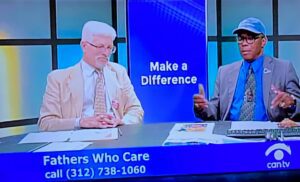By Sean M. Hoyer, LCSW, DCSW, Area Director
The Substance Abuse and Mental Health Services Administration (SAMHSA) has awarded WestCare Illinois a five-year grant to provide integrated Substance Use Disorder (SUD) treatment and workforce development services for adults diagnosed with a SUD and in need of employment with the goal of living independently. The individuals may face challenges to employment including but not limited to low income, homelessness, a lack of familial support, or being a justice-involved individual.
The program will accept referrals from existing WestCare Illinois programs, self-referrals, and other service providers with a focus on meeting the needs of residents of the Chicago neighborhoods of West Lawndale, Little Village, Pilsen, and Englewood as well as the City of Markham. These communities were selected for the focus of our efforts because they are representative of the systematic disenfranchisement that has created wide gaps in employment, health, and income levels on the west side of Chicago and in the southern suburbs. To illustrate this disparity, a City Lab article noted, “The south side and the southern suburbs, known for their concentrated poverty and racial segregation, have fewer opportunities. For instance, communities in the City’s north have between 10,362 and 31,427 jobs, while no area below the south side neighborhood of Hyde Park has more than 6,692 jobs. Thirteen of the 25 community areas in the south have less than 3,000 jobs each.” Additionally, these communities have significant lack of resources to respond to SUD and unemployment. For example, Markham and South Lawndale have no SUD providers. Consequently, both communities experience a significant rate of overdose risk.
To address the needs of these individuals, WestCare and its partners will implement Evidence-Based Programs (EBPs) to support at least 470 individuals over the next five years in SUD treatment and recovery to live independently and participate in the workforce. All programming will be trauma-informed, gender-specific, and evidence-based. Those EBPs include The Seven Challenges, Motivational Interviewing, Seeking Safety, Transforming Impossible to Possible: A Job Readiness Curriculum for the Workforce Development Field, and Career Foundations Making Your Education Work for You.
Treatment is only cost-effective when all of the individual’s needs are met, including the recovery support services of workforce coaching and development. Vocational needs are dynamic and no single entity can meet all of an individual’s needs. WestCare will partner with HopeTEC, a known entity within the Englewood community to deliver workforce development services. Program participants will be able to access a continuum of services depending on their individual needs and assessment. Outpatient SUD treatment will run concurrently with vocational services so that individuals can establish independent living as soon as possible. The average length of workforce development services is expected to be two months. Recovery coach services will be provided for the duration of program participation, which is anticipated to between four and six months. Program completion is considered to be employment. Our partners at HopeTEC will assist program participants to transition into the workforce.




